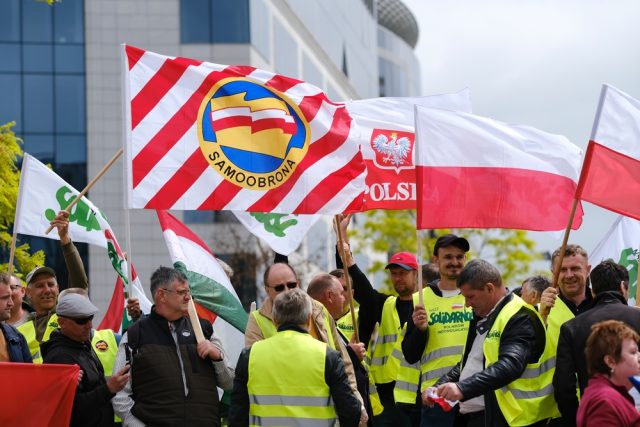
The European Union’s trade agreement with Mercosur does not appear to be generating the same sense of security and stability that other EU trade agreements have brought. Quite the opposite, in fact. Polish Prime Minister Donald Tusk has officially confirmed that his government will not support the trade deal between the European Union (EU) and Mercosur in its current form.
This announcement follows a growing wave of opposition from other EU countries, including France, which had already voiced their objections, casting doubt on the technical ratification of the agreement. In this context, Tusk stated, “We are not alone,” highlighting that many other EU member states share Poland’s concerns regarding the negative impact of the agreement, particularly on the agricultural sector.
Poland’s opposition to the free trade deal is mainly driven by the interests of its agricultural sector, which feels threatened by the conditions of the pact. The central issue revolves around the quantity of poultry meat that would be allowed to be imported from Mercosur countries such as Brazil, Argentina, and Paraguay.
This concern has sparked intense debate, as the Polish agricultural sector believes that the deal could lead to unfair competition and severely impact domestic production. The Polish farmers have mobilized in defense of their interests in recent months, with protests and even a blockade at the Ukrainian border, intended to emphasize the magnitude of the opposition to imports.
Despite the objections from several countries, the negotiations on the EU-Mercosur agreement continue to move forward. This week, representatives from the European Commission and Mercosur countries resumed talks in Brasilia, hoping to resolve the last contentious issues of the deal.
Initially announced in 2019, the agreement has faced numerous setbacks due to political differences both within the EU and among EU member states. In this context, outgoing European Commission Vice President Valdis Dombrovskis acknowledged that the negotiations had become more complicated and would require high-level talks to overcome the final hurdles.
Nevertheless, the reality cannot be ignored. The political ratification process is expected to face significant challenges, as many EU countries have reservations about the potential consequences of the deal, particularly concerning areas like the environment, agriculture, and competition with local producers.
Poland’s rejection, alongside France’s opposition and that of other countries, casts serious doubt on the viability of the agreement in its current form. While countries like Spain and Germany firmly advocate for the need to finalize this free trade agreement, despite numerous complaints from workers in the primary sectors, the Polish government has made it clear that the agreement, as it stands, is “unacceptable” and is seeking support from other countries to halt its ratification.
Even with the opposition from member states and the agricultural and livestock sectors, the European Commission seems to be working diligently to find a solution that would avoid the need for ratification by all 27 national parliaments. This could potentially streamline the approval process and prevent further delays or vetoes. The European Commission appears to be exploring ways to push the deal through without requiring individual parliamentary votes from all EU member states, which could expedite the approval and reduce the risk of additional blockages.
Poland’s stance on the Mercosur trade deal underscores the difficulties the EU faces in closing this pact, which has been on the table for more than two decades. While some countries defend the economic benefits of the deal, others, such as Poland and France, continue to resist it due to concerns about the impact on their agricultural sectors. As technical negotiations progress and internal political divisions persist within the EU, the future of this agreement remains uncertain. The EU will need stronger support to push the deal through, especially with France and potentially three other countries—Netherlands, Italy, and Austria—joining the opposition.
The EU is at a crossroads. The bloc is facing a fundamental challenge: to reconcile the economic benefits of this deal with the protection of domestic sectors that could be adversely affected. The Mercosur deal, which could shape the EU’s trade relations with South America for years to come, remains one of the most contentious agreements in the EU’s recent history. While the European Commission is pushing ahead with the negotiations, securing a consensus among member states will be crucial to the deal’s future. With countries like Poland and France still holding firm against the agreement, the EU’s ability to overcome internal divisions and reach an agreement that satisfies both economic and environmental concerns is yet to be determined. As the clock ticks, the EU must find a way to navigate these complexities or risk letting the deal unravel entirely.



 Subscribe
Subscribe